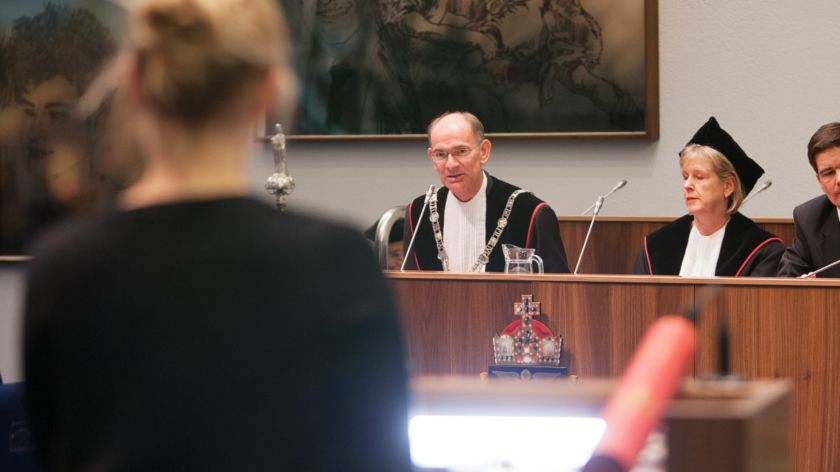‘Radboud University, grant your senior lecturers the ius promovendi’
-
 Foto: Dick van Aalst
Foto: Dick van Aalst
OPINION PIECE – The Radboud University is not in the leading group when it comes to granting its senior lecturers the ius promovendi. On the contrary, compared to other Dutch universities, it is hiding in the pack. A missed opportunity, says assistant professor of Mathematics and member of The Young Academy Arne Smeets. It’s time for a breakaway!
Dear Radboud University,
This week, The Young Academy published a comparison of the way in which the Dutch universities are handling the relaxation of the ius promovendi regulations. It shows that our university is not in the leading group. Although we are not in last position either, we are riding around anonymously in the pack. Recently, our associate professors have been given the right to act as promotor (primary supervisor) for their PhD candidates, under strict conditions. The procedure is complex: recommendations by research directors, selection by deans, screening by central units, discussion by the Council of Deans. The requirements are extremely stringent, and in practice boil down to the fact that candidates must have reached or even surpassed the level of full professor, even though they formally do not hold this position.
The Dutch ius debate is typified by a high level of navel-gazing and is out of step with the times.
Observation #1. When we look across our borders, we notice that in the United Kingdom, the Unites States, Belgium and Germany assistant professors, lecturers, teachers and junior professors are allowed to act as primary supervisors of their PhD candidates as a matter of course. In France, things are different: maîtres de conférences (the French equivalent of assistant professors) must write a habilitation before they are given the ius promovendi. However, this threshold is much lower than what we at Nijmegen demand of our associate professors. Although France is not exactly a model of academic modernity (postdoc students, for example, are a rare species in this country), in the Netherlands conferral of the ius appears even more restrictive. What does this say about us?
Observation #2. If an assistant or associate professor is asked to supervise a PhD candidate, it usually means that they have been awarded competitive financing by NWO or ERC – of course, our university has no qualms about benefiting from its senior lecturers in this way. Grant proposals are assessed on the academic qualities of the applicants but also on their track record as principal investigators and thus their supervisory qualities. An NWO committee will never award a Vidi grant to an applicant who is deemed unfit to train PhD candidates. Once grants have been secured, successful applicants usually receive a mention in an overblown press release but are later denied the trust and respect that they should have earned with their hard work as applicants and supervisors. Mind-blowing! Many feel this as a vote of no-confidence.
Observation #3. During their initial temporary appointment, tenure trackers at the Faculty of Science are obliged – and rightly so – to prove that they can supervise PhD candidates. If they succeed and are then given tenure as assistant professor, the message our university sends is that this obligation is ridiculous, since none of our assistant professors currently have the ius. How about that for a gap between theory and practice?
This ‘debate’ leads to crazy situations. At Mathematics, for example, we have just selected a future colleague for a position as assistant professor. She was selected from 140 incredibly strong candidates and currently holds a prestigious position as a Juniorprofessor in Berlin, where she has successfully supervised two PhD candidates. Obviously, she is given the respect she deserves as their primary supervisor. On the one hand, I am really looking forward to her arrival. On the other, I dread the moment when I have to explain our ius promovendi. Welcome to Nijmegen!
Therefore, dear Radboud University, why don’t we simply take the lead?
Currently, this position is held by the University of Amsterdam, where some assistant professors can be given the ius. It is no coincidence that this university has a Flemish Rector Magnificus who is highly critical of the Dutch traditions.
Of course, we at Nijmegen can continue to hide in the pack.
I myself am in favour of forging ahead.
In line with the wishes of The Young Academy and international best practices, we should give all assistant and associate professors the right to act as primary supervisors of their PhD candidates. This would send a strong signal to the other Dutch universities and, more importantly, it would unequivocally show our faith in our people.
Kind regards,
Arne Smeets



